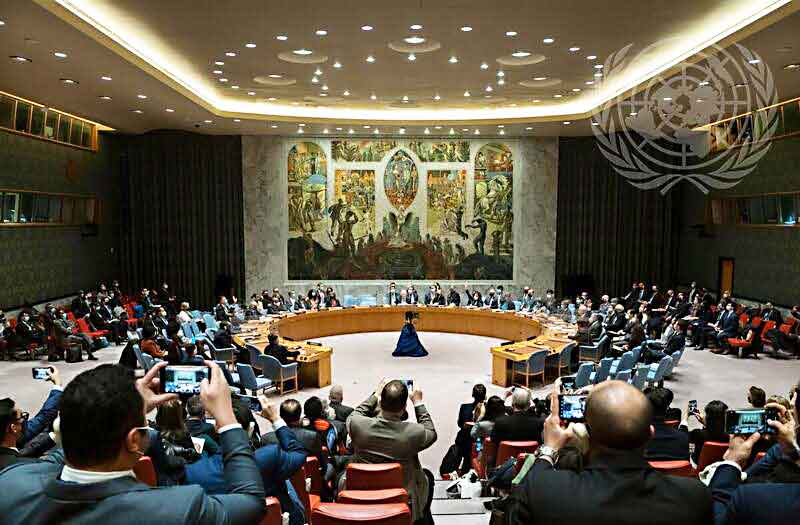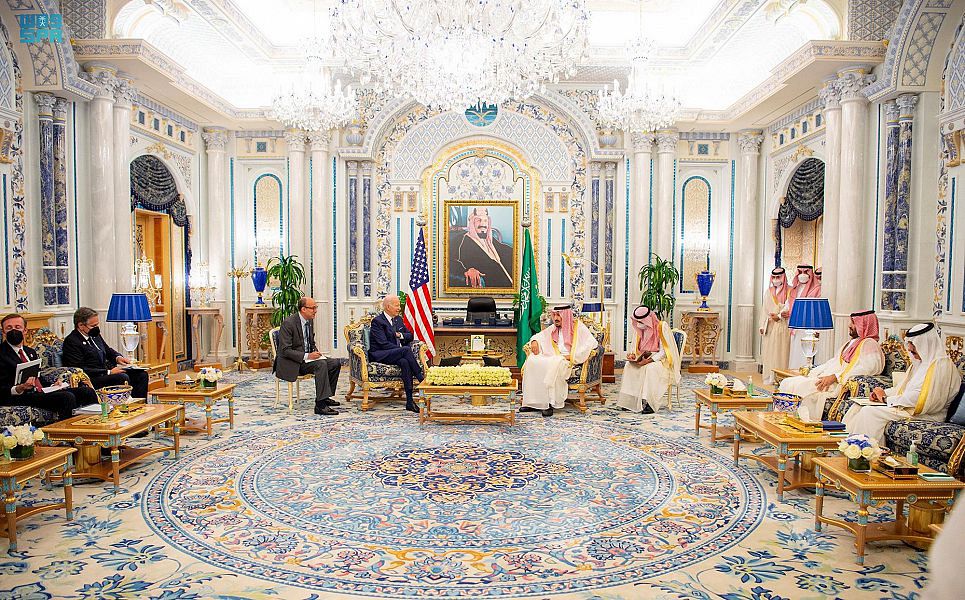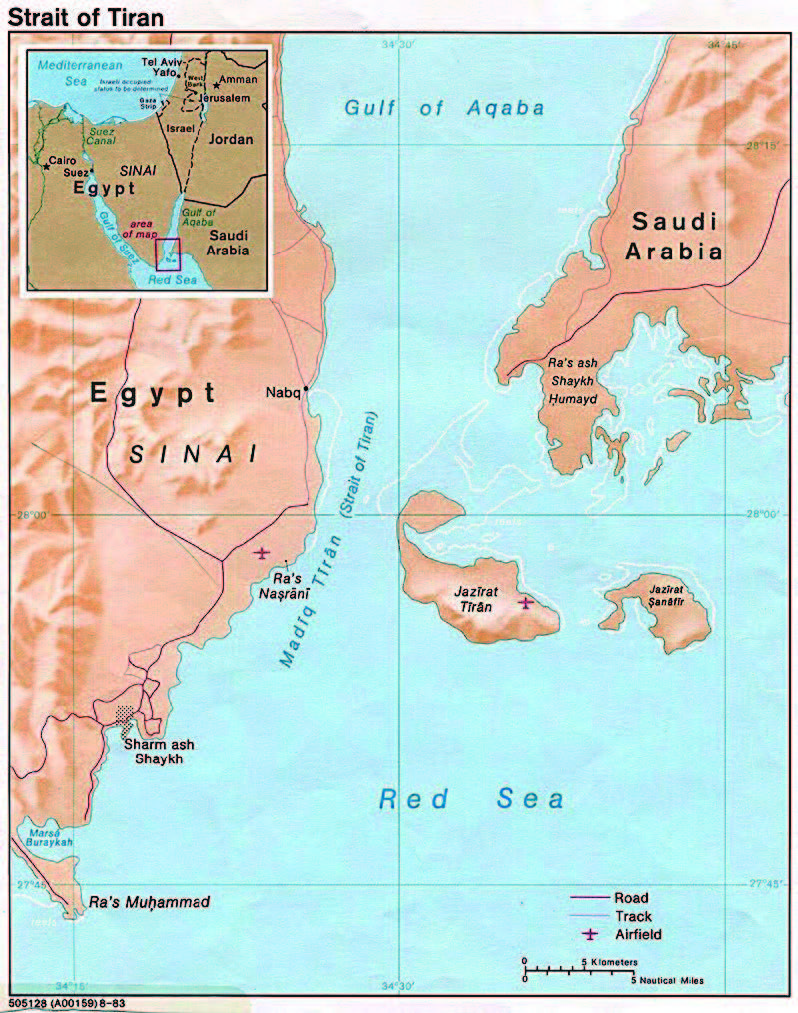Gulf States and Israel Looking for Peace
By Takafumi Honda, Journalist
From the Autumn Issue of the electronic “Salaam Quarterly Bulletin”, No.43, November 2022
Resolution Condemning Russian Invasion of Ukraine

The United Nations Security Council votes on a resolution condemning Russia’s invasion of Ukraine on February 25(UN photo)
Western countries have strongly condemned Russia’s invasion of Ukraine in February and have continued to provide political and military support to Ukraine. Although this is a clear aggression against another country and a change of status quo that defies international law, many countries in the Middle East, Africa, and Asia have been reluctant to condemn Russia or have taken a neutral stance. The same is true of the Persian Gulf states, which have been regarded as pro-U.S.
The United Arab Emirates (UAE) abstained from voting on the resolution condemning Russia at the UN Security Council meeting held on February 25 in response to the invasion. Kuwait and Turkey voted in favor. The UAE has long had close economic ties with Russia, and is a well-known destination for wealthy Russians. So UAE may have seen it as unwise to worsen relations with Russia.
Middle Eastern and North African Countries’ Responses to the Vote

Dr. Abdulkhaleq Abdulla: Dr. Abdulkhaleq Abdulla is a UAE national born in 1953. He holds a PhD in Political Science from The Georgetown University. He is a former professor of political science and a Chairman of the Arab Council for Social Science (www.theacss.org) and served as director of the Gulf Research Unit, Sharjah for 10 years. He was a visiting professor at The Georgetown University’s Center for Contemporary Arab Studies. His most recent books are “The Impact of the Arab Spring on GCC Countries,” “Socio-Political Issues of the Arab Gulf Moment,” and “The GCC at the Crossroads.”
Abdulhalek Abdullah, a professor of political science in the UAE and a visiting scholar at Harvard University, noted that the UAE’s abstention was not for political reasons, but because the UAE as a non-permanent member of the Security Council “represents all of Asia and the entire Arab world.” His position is that the decision is not based solely on the interests of the UAE.
Meanwhile, at the UN General Assembly meeting March 2, the UAE voted in favor of a resolution condemning the invasion. This is the UAE’s legal position on the invasion. A total of 166 countries voted in favor of the resolution, 14 Middle East and North Africa (MENA) countries voted in favor of it, with only Syria voting against it, Algeria, Iran, and Iraq abstaining, and one country not voting.
On the other hand, from the perspective of the Arab Gulf states, the picture is different. From the perspective of the entire region, including the Gulf, the invasion of Ukraine is “a European problem, and we don’t want to get involved” (Dr. Abdullah). Economically, Russia is a member of the Organization of Petroleum Exporting Countries (OPEC) Plus and has interests with the Gulf oil-producing countries, forcing it to take a neutral approach.
Mr. Abdullah said that “Russian President Vladimir Putin, unlike the West and especially the United States, has paid respect to Gulf leaders and built personal relationships with them,” and he believes that the trust built on a one-to-one basis in Arab society, where “personal connections” matter, also influenced the Arab countries’ response to the invasion.
Historically, there has been a deep-rooted distrust of the United States in MENA. This is partly due to U.S.-Israeli relations, and partly due to the way the U.S. has responded to Iraq and Afghanistan. This is probably why there is strong popular support in the Middle East for Putin’s stand against the U.S. and other Western powers.
Dr. Abdullah notes, “The winners and losers in the Middle East are already clear. The winners are the six Gulf Arab states: Saudi Arabia, Kuwait, Bahrain, Qatar, UAE, and Oman. The “economic and strategic value of their countries” has increased due to the surge in oil and gas prices following the invasion of Ukraine. The losers, on the other hand, are Lebanon, Egypt, and other countries that were dependent on Ukrainian wheat.
U.S. Administration Moving Closer to Saudi Arabia
U.S. President Joe Biden has shown little interest in the Middle East since he took office. This is due to his declining dependence on Gulf oil and gas and his shift to Asia to counter the rising China, but this summer he visited Saudi Arabia, which he had initially criticized as a “pariah” state due to concerns about human rights abuses, and temporarily shelved the human rights issue.

U.S. President Joe Biden (center left) meets with Saudi leaders in Jeddah on July 16. (Saudi Press Agency)
Israel and the Gulf States’ Desire for Peace
Israel has not criticized Russia over its invasion of Ukraine. Dr. Abdullah points out that this is because “there are many Russian Jews who have great influence in Israeli politics.”
It is believed that Saudi Arabia allowed Israeli planes to pass through its airspace because of Israel’s concession over two islands in the Strait of Tiran.
The islands of Tiran and Sanafir, whose possession had been disputed between Egypt and Saudi Arabia, were decided to be returned to Saudi Arabia in 2017. However, since the return of the islands required approval from Israel based on the Israel-Egypt Peace Treaty, Israel is believed to have made concessions.

Tiran and Sanafir islands in the Strait of Tiran: Tiran Island is strategically important in the region because it forms the narrowest part of the Strait of Tiran, an important sea route to the main ports of Aqaba in Jordan and Eilat in Israel (Wikipedia)
After resigning from office, former President Trump recalled that diplomatic relations between Saudi Arabia and Israel were close to be established, and the day may not be far off when the two countries, long sworn enemies, will recognize each other.
